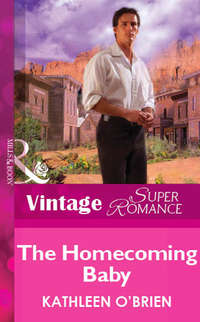
Полная версия
Christmas in Hawthorn Bay
Sean smiled. “Oh, he’ll fight, especially once he realizes you’re his opponent. Somehow I don’t think he’s ever forgiven you for trying to kill him.”
Jack hoisted one of the black leather cases and extended the other to his brother. He held onto the handle an extra second.
“Just for the record. If I’d ever tried to kill Tom Dickson, he’d be dead.”
“Point taken.” Sean chuckled as he led the way into the house. “Though I’m not sure that logic will cut much ice with Tom.”
Given the dilapidated state of the exterior, Jack was surprised to see how neat and clean—if somewhat Spartan—the interior of the mansion had been kept. The rooms had all been painted recently enough to shine a little, and the heart-of-pine floors were freshly varnished.
There wasn’t much furniture. Their dad—Crazy Kelly, his friends called him—had sold all the antiques years ago, in his attempt to set the world record for butt-stupid poker playing. He’d lost the grand piano betting on a pair of tens.
But the few pieces Sean had scattered around were sensible and high quality. Even Kelly Killian hadn’t found a way to sell the marble off the walls, or the carvings off the cornices, so the interior still made quite an impression.
As they walked past the elaborate painted-brick archway that led to the living room, Jack realized he was tensing up instinctively. Their mother had kept her collection of miniature glass unicorns in there, and it still made Jack cringe to remember how he and Sean had occasionally joined in their father’s mocking laughter. “Unicorns! Are you daft in the head, Bridey, or just a goddamn fool?”
When she’d fallen that day, she’d hit the case and broken every one. Jack didn’t look into the living room as they passed, but out of the corner of his eye he imagined he still saw the twinkle and glitter of shattered glass.
So, he thought. Not all the ghosts had moved out.
But overall, the place had definitely changed for the better. It didn’t smell damp and defeated anymore, as if it stood in a stagnant bog of booze and tears.
“I put you in your old room,” Sean said. “But let’s have a drink first, okay? There’s some stuff I probably ought to fill you in on.”
They dropped the cases at the foot of the wide, curving staircase and headed toward the smoking room, where the liquor cabinet had always been kept. Jack didn’t wonder, even for a second, what kind of drink Sean intended to offer him. Neither of them had ever drunk liquor in their lives—except for that one night, the night before Jack had joined the Army. Jack had gotten plastered that night, and it had scared the tar out of him. There was no nightmare more terrifying than the fear that they’d turn into their father.
“Soda? Or iced tea?” Sean had obviously tossed out the cherry-inlaid liquor cabinet, with its front scarred from Kelly’s fury when Bridey had dared to try to lock him out. Instead, Sean had installed a handsome modern marble wet bar. “I’ve got water in six flavors. The chicks love it.”
“I’ll take a Coke,” Jack said. He parked himself on one of the bar stools and looked around the mostly bare room. “I have to tell you, buddy. For a junk dealer, you have remarkably little junk.”
Sean handed over the cold can and shrugged. “Yeah, well, I buy to sell. I don’t keep. I don’t care much about stuff, you know? All these people, they accumulate these expensive trinkets, hoping the stuff will define them, or save them, or…whatever. Bull. If material things had any power, then Mom…”
He didn’t finish the sentence. He didn’t need to. A hundred crystal unicorns, and not enough magic in the lot to stop a single tear from falling.
Jack’s apartment in Kansas City was equally spare.
“Anyhow,” Jack said to cover the silence. “Fill me in. You said that the city council has let you know they want to buy Sweet Tides. And that they’ve hinted that, if you don’t sell willingly, they’ll find a way to claim eminent domain. Somebody wants to put up a shopping plaza or condo complex or something like that, right?”
“Yeah. They brought it up earlier this year, but I thought they were just trying to rattle my chains, you know? I thought they’d back off, because it’s such a stupid idea. Unless they can claim that Sweet Tides is a blight, it’s going to be hella hard to assert eminent domain. But they haven’t let go of the idea. They’ve already tried, informally, of course, to talk numbers with me.”
“And what kind of number did they suggest?” Jack knew that, unfortunately, the people displaced by eminent domain often ended up taking less than their property was worth, just because they didn’t have the savvy to know how to fight back. “Was it even in the ballpark?”
“That’s what made me nervous. They offered top dollar. Does that make sense to you?”
Jack shook his head slowly. “Not as a first offer. They have to know they need bargaining room.”
“That’s what I thought.”
“So what’s going on? You know these people better than I do. Do they really want to put a shopping plaza out here that bad? Didn’t look to me as if the commercial area had spread out this far yet anyhow.”
“It hasn’t. And no, they don’t want that blasted shopping center. They couldn’t. The one they built last year doesn’t have full occupancy yet.”
Jack sighed. “So. Can I assume this is just a new case of Killian fever? Someone has decided that the trashy Killians can’t be allowed to live this close to decent folk?”
“Maybe.” Sean looked thoughtful. He came out from behind the bar and stood at the picture window, which looked out toward the river. “Or maybe it’s a different kind of fever. Maybe it’s the gold.”
“Oh, for God’s sake, Sean. No one really believes that anymore. Everyone knows that, if there had been gold on this property, dad would have found it and bet it all on a pair of tens.”
Sean was quiet a long time, just staring out the window, as if he was hypnotized by the moss swaying from the oaks. Finally he turned around.
“But what if there is? We used to think we’d find it, remember, Jack?”
Of course he remembered. The two of them had sneaked out almost every night for a year, right after their mother had gotten sick, and had dug holes until they’d been so tired and dirty all they could do was lie on their backs and stare at the stars. And whisper about what they’d do with the gold when they found it.
Sean, who was two years older and much nicer, had always listed a detox center for their dad first. Jack had called him a moron. Betting that Kelly Killian could get off the bottle? You might as well throw the whole treasure away on a pair of tens.
“I remember,” Jack said. “That’s about a thousand hours of our lives we’ll never get back, huh?”
Sean shrugged. “Another piece washed up last month. We got six inches of rain in two hours. When it stopped, there was a Confederate coin out on the South Forty.”
Jake wasn’t impressed. Coins had washed up at odd intervals for the past hundred and fifty years. Just enough to keep the rumor alive. Never enough to make anybody rich.
“So, look, Sean, what exactly do you want me to do? I can try to get an injunction against the city council, preventing them from pursuing the eminent domain claim. But it’ll only slow it down. If they’re determined, they just might win in the end. The Supreme Court has ruled that this sort of thing, to bring in necessary revenues, is legal.”
“Slowing them down is enough.” Sean looked tired, Jack suddenly realized. “Truth is, Jack, I don’t really care about the house. I’m ready to let go of it. Too many memories, I guess. I’ve done everything short of an exorcism, but the damn place is still haunted, you know?”
Jack nodded. He’d never understood why Sean stayed in the first place. Their only living relative was their grandfather, Patrick, who had once been a strong force in their lives, but who now resided in the local nursing home.
A major stroke had brought him down—no one was sure how clear his mind was now, Sean had explained when he’d called Jack after the stroke. Patrick had almost complete loss of motor control on his left side. He couldn’t even leave his bed, unless the nurses hoisted him into a wheelchair and strapped him in.
Surely he could be moved to another nursing home, in some other city, if Sean really wanted to get away.
Jack certainly had wanted to. Once Nora Carson had made it clear she never wanted to see Jack again, Hawthorn Bay had held nothing for him. He was sick of fighting the Killian reputation—even if he had contributed plenty to it himself.
And he wouldn’t have lived in this house for all the gold in the world.
“Okay. But if you don’t want to save Sweet Tides, why did you need to import a big-shot Kansas City lawyer like me?”
Finally Sean smiled. “To slow them down, like you said. I want time, Jack. I want time to find the gold. And I want you to help me.”
Jack hesitated. Then he laughed. “You sure you haven’t taken up the bottle? You’re talking crazy now.”
“No, I’m not. A friend of mine, a woman named Stacy Holtsinger, she’s found something. You don’t know her, she came here after you’d already left. But she’s doing a master’s in history, and she’s going through a lot of the old Killian letters for her thesis. She found one that seems to talk about the gold.”
“Everyone talks about the gold,” Jack said irritably. “Words are cheap.”
“She’s got the letter now, but I’ll show it to you tonight. I think you’ll see what I mean. It feels important. It feels real.”
“Sean, look, you told me you needed a lawyer, not a treasure hunter. I’m afraid I left my metal detector at home. Besides, I’ve got a job. I’ve got cases in Kansas City that—”
“A month. That’s all I’m asking. Every big shot can get at least a month off, can’t they? It’ll mean we have Christmas together. And you can see Grandfather.”
That would be nice. He and his grandfather had been close when Jack was little. Patrick had provided the only affectionate “fathering” Jack had ever gotten. Some of his happiest memories were of walking through the marshes with his grandfather, bending over to inspect the bugs and butterflies Patrick pointed out.
When Patrick and Jack’s dad had fought for the last time, Patrick and Jack’s grandmother Ginny had moved away. Through the years, he’d visited them often—glad that he didn’t have to return to Hawthorn Bay to do it.
But he hadn’t seen Patrick since his grandmother’s funeral last year. He hadn’t seen him since the stroke. He had to admit, it was tempting.
“And hey,” Sean said, “we can clear out the rest of the stuff in the attic while you’re here. So even if we find nothing, the time won’t be a waste.”
Sean put his tea down on the bar and shoved his hands into the pockets of his jeans. He stared at Jack, and his face had that mulish look that all Killians got when they weren’t planning to back down, come hell or Union soldiers.
“Come on, Jack. I haven’t asked for a damn thing in twelve years. Can’t you give me one month?”
Jack couldn’t say no. He’d started out tough, and the Army and the law had only made him tougher. But not tough enough to say no to Sean when he sounded like this.
Besides, Jack was already here. That had been the biggest hurdle. Now he might as well look around. And if Sweet Tides was going to get bulldozed to make room for Slice O’Pizza and Yuppies R Us, he might as well stick around long enough to say a proper goodbye.
He’d say goodbye to old Patrick, too.
He stood. “Okay. I’ll stay till after Christmas. Meanwhile, I’ll go talk to the city attorney and see what this band of weasels is planning. I’ll pretend we’re going to fight tooth and nail. I’ll see if I can buy you some time.”
“Thanks, Jack. Really, thanks a lot.” Sean looked pleased, but still, oddly, a little uncomfortable. “I—Well, if you’re going right now I guess there’s one other thing I probably should tell you.”
“Yeah?” Jack raised the Killian brow. “What’s that?”
“Know how I told you Tom Dickson is on the city council?”
“Of course. That’s how you got me to come, remember?” Jack grinned. “Actually, I could probably have guessed that anywhere there’s a band of weasels, Tom Dickson will be nearby. What else is there? Have I got some other old friends on the council?”
“Sort of. Not exactly a friend, and not exactly a councilman. You see, it’s the mayor.”
“Okay. Tell me. Who is mayor these days?”
Sean paused.
“I’m sorry, Jack. It’s Nora Carson.”
CHAPTER THREE
1862
JOE KILLIAN WASHED UP in the river, though the December air was frigid. He was too covered in dirt and sweat to use the basin in the bedroom. Julia slept lightly on her perfumed sheets, and the stink of wet earth would wake her.
His shoulders ached. He’d worked hard all his life, but only with his mind, not with his arms and legs. Though he had inherited Sweet Tides and the one thousand acres of rice fields all around it, he’d never planted anything with his own hands.
Until tonight.
Tonight he had planted the crop that would, he prayed, secure his future. Billings and Pringle were arriving in the morning. They would take his gold for the Cause, and in return they’d give him piles and piles of Confederate paper.
Joe was a Southerner by birth, and his father before him. But Joe had married a Philadelphia woman, and he’d visited there many times. He knew facts, hard realities about the differences between the two places. He knew things that these naive Hawthorn Bay zealots—men who thought the South Carolina state line was the edge of the civilized world—couldn’t even imagine.
He knew that, unless God intervened with a miracle, Confederate paper would be worthless within the year.
And he knew that Julia, with her divided loyalties and her love of all things graceful and easy, would despise him for a fool. She had already hinted that, if foodstuff were to be rationed any further, she might have to make her way home to Daddy.
Joe wasn’t afraid to live without coffee and sugar and meat. He wasn’t even afraid to die, although that didn’t seem likely, since, bowing to Julia’s charming entreaties, Dr. Hartnett had certified him unfit for fighting.
But Joe couldn’t live without Julia.
And so he had buried the gold. Dozens of heavy bars, hundreds of elegant coins, all gleaming dully under the cloudy moonlight, their fire winking out as he shoveled the black dirt over them, spade by spade. When Billings and Pringle came tomorrow, Joe would toss them a few bars, like scraps to the hogs. They’d be surprised, maybe even suspicious, but what could they do?
Julia would know, of course. She was as clever as she was lovely. She would give Joe one long look, and then she’d bewitch Billings and Pringle until they forgot to be suspicious.
When he was through, Joe made his way to the bedroom quickly. He’d begun to shake from the cold and the exhaustion of his limbs. As he climbed into bed, a shaft of moonlight fell on Julia’s ivory face, and he told himself it would be all right.
But, in spite of the perfumed sheets, in spite of Julia’s warmth beside him, the sleep that finally came to him was thick with dreams.
He dreamed of dead men bursting from black-sod graves. They rose and, like an army, marched slowly toward Sweet Tides to avenge their terrible deaths.
They had no skin, no flesh to soften their skulls, no eyeballs to gentle their pitiless stares. But their bones shone in the moonlight.
Bones made entirely of gold.
WHEN JACK SAW THE BUSTLE in the town square, with the Santa in the band shell and the Christmas tree in the center, he wasn’t a bit surprised.
Like most little towns, Hawthorn Bay loved a good festival. Without the museums and theaters and operas and bars of a big city, the good people of the community had to break their boredom other ways. So they held parades and picnics and rodeos, carnivals and cook-offs and white elephant jumbles. Any excuse to string the town square with fairy lights would do.
Jack had actually liked the festivals, back in high school. As the reigning community leaders, “Boss” Carson and his society wife, Angela, had always been in the thick of things, busy with committees and volunteers, organizing the dances and pouring the lemonade. Which had given Jack the perfect chance to sneak away with Nora.
Back then, he’d always been burning up with the need to touch her. With a girl like Nora, you had to go slow, but over the six months of their romance he had been claiming her, inch by tormenting inch. He’d already owned her soft, sunshine-golden hair, her lips, her cheeks, her ears, her eyelids. He had left his mark on her neck, her collarbone, the inside of her elbow, her swelling, rose-tipped breasts.
He’d win her all someday, he’d been sure of that. The fire lay so deep inside her that it didn’t often show on the outside, but he knew it was there. He could taste it in the heat of her lips. He could hear it in the trapped-butterfly beat of her heart.
And then, one day, in a black Killian temper, he’d put the fire out for good.
But that was ancient history. He gave himself an internal shake and put the memories back in cold storage.
It had been late afternoon when he’d left Sean at Sweet Tides, and by the time he got to City Hall, though it was only about four thirty, the offices were closed. At The Christmas Jubilee, the sign on the door read.
He left his car by the municipal complex and walked back to the town square. It was growing colder, and the trees were already casting long shadows on the sidewalk. The sun would probably go down in about an hour or so—he could tell by the light on the river behind City Hall, which was morphing from dark blue to dirty pink.
The sky was a little busier, too, as the birds made their last-minute flights back to their nests.
Funny how quickly he could fall back into the rhythms of coastal life. He might have been gone for only twelve days, instead of twelve years.
He stood at the edge of the square for several minutes, just absorbing the scene. They’d gone all out for this particular festival. Main Street was lined with life-size, blow-up snowmen, which would have been right at home in the Macy’s parade. Every tree, large and small, twinkled with colored lights. At the south edge of the square, an ornate merry-go-round in which every horse was a reindeer twirled to the tinkling sounds of “Jingle Bells.”
But most of the activity was concentrated at the north end, up by the band shell. That was where Santa was holding court, enthroned in red velvet under the bright lights that usually illuminated the Hawthorn Barbershop Quartet. A long line of children wound down the band shell stairs and out into the square, waiting to sit on Santa’s lap.
Boss Carson used to do the Santa bit, but Jack knew that Nora’s dad had died quite a few years ago. He wondered who had taken over. He moved up a few yards, to the edge of the bank of folding chairs, to get a better look.
Well, how about that? It was Farley Hastert. Talk about casting against type. Farley had been the tallest, skinniest boy in Blackberry High. A couple of years older than Jack, he’d been a basketball jock and a straight-A student, on top of having a very nice, very rich father. Naturally, Farley was never without a gorgeous girl on his skinny arm.
Jack had been so jealous of Farley Hastert, he hadn’t been able to see straight. Once, Nora had let Farley give her a ride home from school, and Jack had gone caveman, getting up close into Farley’s long, hound-dog face and ordering him to stay away from his girl, or something equally Neanderthal.
Nora had broken up with Jack on the spot, and the week before she forgave him had been pure hell.
True to form, Farley still had a gorgeous girl with him. Santa had a sexy elf helper this year, dressed in a tight-fitting, very short red satin mini-dress trimmed in white fur. Red tights set off fantastic legs, and a perky red cap perched on top of bouncing blond curls.
Jack stood up straighter.
That was no elf. That was Nora.
“Well, knock me down with a feather! If it isn’t Black Jack Killian himself, all dressed up like a banker!”
Jack turned. It took him a minute to place the face, which looked like the much-older version of someone he once knew. The red hair was a clue, and finally he made the connection.
“Amy!” He gave her a hug, hoping his face didn’t register surprise. Amy Grantham was actually two years younger than he was—maybe twenty-nine or so? But she looked forty-five and exhausted. “I didn’t know you were back in Hawthorn Bay.”
“It sucked me back,” she said with a dry smile. “I married Eddie Folger, he’s got a charter boat business. We…we don’t have any kids yet, but we’re still trying. We do all right.”
“I’m glad,” he said, but it hurt to see her so drawn and discouraged. He had hoped her life had improved.
They’d met at an Al-Anon meeting his first year of high school. Amy’s father had been an alcoholic, too. And they’d both been poor. That had been enough to make them friends. Secretly, they’d bonded against all the happy families in Hawthorn Bay—secretly because Amy hadn’t wanted anyone to guess how much being an alcoholic’s child could define you.
Jack had already accepted his fate as an outcast—what was the point, after five generations of Killian hatred, in fighting it?—but Amy was still pretending she was just like everyone else.
They still exchanged Christmas cards sometimes…or at least his firm used to send his. He tried to remember whether they’d started to bounce back, after she’d moved. He was ashamed to realize he had no idea.
“What about you?” She smiled at him. “What are you doing here? Don’t tell me this place has got hold of you again, too?”
He shuddered inwardly at the thought. “Nope. I’m just here to see Sean. He’s in a tangle with the city council, and he needed some legal advice.”
Amy rolled her eyes. “Them! Yeah, I heard about them wanting Sweet Tides. They’re just a bunch of vultures, the lot of them. But they’ve got the power, just like they always did. Tom Dickson is one of them, did you know that?”
Jack smiled. “Sure. That’s the icing on the cake. Made the whole trip down here worthwhile.”
Amy glanced at the band-shell stage. “And she’s one of them. In fact, she’s the head buzzard. I guess you knew that, too.”
“Yeah.”
“Have you seen her yet? I mean, to talk to her? Does she know you’re in town?”
“Not yet.” He watched Nora lead a little girl up and lift her into Santa’s lap. The little girl began to cry, so Nora knelt beside her, soothing her tears. “I don’t think she’ll exactly be thrilled to see me.”
“You two never made up, then?” Amy’s pursed mouth moved nervously. “You never—explained things to her?”
He put his hand on the woman’s arm. It was painfully thin. Amy had been anorexic back in high school. He wondered if she still was. Her neck was stringy, like an old woman’s.
“I promised you I’d never tell anyone about all that,” he said. Had she carried this fear around with her for the past twelve years? “I meant it.”
“But…” Amy’s eyes looked watery and pale. “She never forgave you for what you did to Tom, did she? Surely you were tempted to explain—”
“Explaining wouldn’t change anything,” he said. “Nora didn’t want the kind of man who would try to murder anyone.”
“But—”
“And I didn’t want a woman who thought I was that kind of man.”
Amy gazed at him a long moment, then nodded slowly. “I guess I can see that,” she said. She drew herself up a little straighter. “I should be getting on home. Eddie will be docking soon, and he’ll want dinner.”
They hugged goodbye, and Jack watched her go. Even from the back she looked like a tired, middle-aged woman. He couldn’t help comparing her to Nora. In that ridiculous but strangely seductive elf suit, Nora could have been mistaken for a teenager.
He looked at the stage again. There seemed to be some kind of commotion. Nora was talking to a group of kids, and Santa was walking slowly down the stairs. As soon as she herded the kids back to the line, she posted a sign that said Santa Will Be Back In Five Minutes. Then she turned quickly and followed the man in the red suit.









